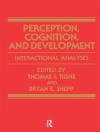The contributions in this book address the question of how to develop and foster democratic competences. This may take place via school curricula, resource materials and teaching/learning methods; in workplaces by means of formalised arrangements that encourage self-direction and through the informal processes engendered by expansive working environments; and in personal and community life, including in the course of incidental learning in social networks. The studies and analyses are somewhat nonconformist in its thematic spread and its boundary-crossing between disciplines and perspectives that conventionally live separate lives.
Innehållsförteckning
Introduction: Whither Democracy in Everyday Social Life?.- The Democratization of Markets through Participative and Collaborative Practises.- The European Citizens’ Initiative: Empowering Political Participation in the EU?.- Participation in Schools – a Classification Concept.- Moral Competence and Democratic Ways of Life.- Images of Corporate Participation and Democratic Structures in Business Administration Textbooks used in Higher Vocational Schools in Austria, Switzerland and Germany.- Co-determination in Times of Economic Crisis: Changes in the Social Positioning of Works Councillors?.- The Analysis of Preconditions for the Fostering of Democratic Behavioural Orientations in Business Organizations – The ODEM Questionnaire (POPD).- Changing Police Managers’ Attitudes towards Participative Management:Translating Research-based Knowledge into Practical Solutions.- Innovatory Qualifications at Work.- Post-democracy and Engaged Citizenship – The Case of Attac.
Om författaren
Wolfgang G. Weber is Professor for Applied Psychology in the Faculty of Psychology and Sport, University of Innsbruck.
Michael Thoma is Assistant Professor in the area of Business Education in the School of Management, Department of Organisation and Learning, University of Innsbruck.
Annette Ostendorf is Professor for Business Education in the School of Management, Department of Organisation and Learning, University of Innsbruck.
Lynne Chisholm is Professor for Education and Generation in the Faculty of Educational Sciences, University of Innsbruck.












